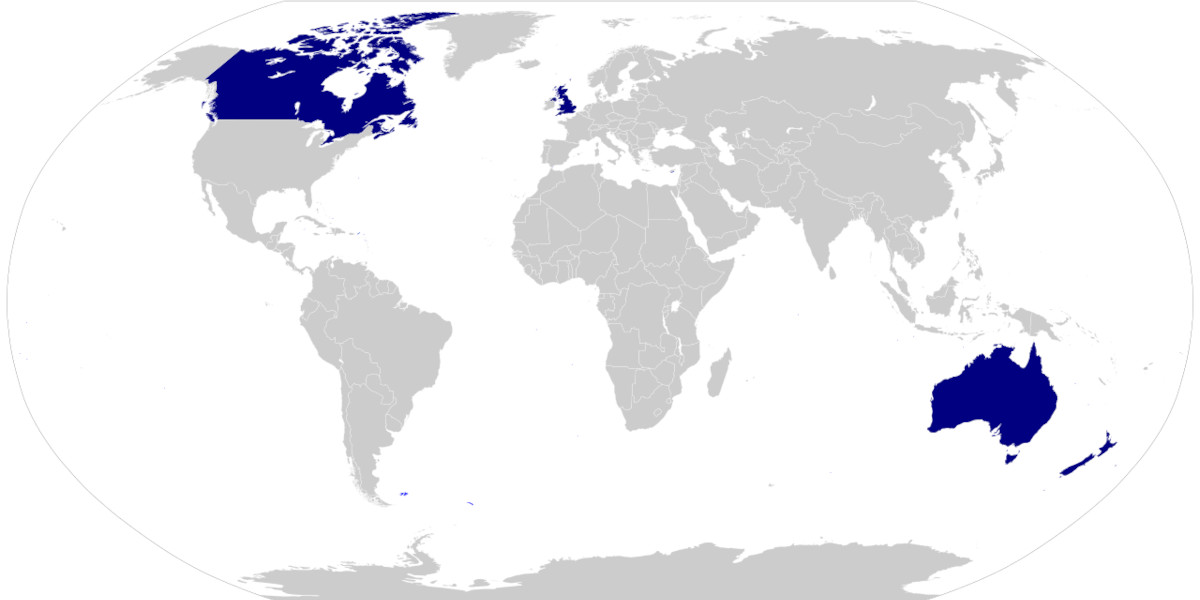Many of those who argued most fiercely that Britain should leave the European Union think we should have an alternative. One such alternative, entertained – or perhaps humoured – by many in the current Tory cabinet, including Priti Patel and Dominic Raab, is the product of various right-wing thinktanks and enthusiasts in Canada, Australia, New Zealand and the UK. It has therefore been dubbed ‘Canzuk’.
The idea of Canzuk replacing the EU in Britain’s alliances is not incidental. Canzukists believe that, as Boris Johnson once put it, we ‘betrayed’ our ‘kith and kin’ in these three countries by joining a union with our neighbours, rather than ‘our’ racial kinsfolk. Canzuk would right this supposed wrong.
Canzuk would be an alliance of many of the nations that make up what Winston Churchill called ‘the English-speaking peoples’ (barring Ireland, which Canzukers can’t forgive for becoming a republic; the USA, which nobody could even pretend would like a union with us; and, as we’ll see, the Caribbean). It resembles AUKUS, the Australia-UK-US military pact, and ‘Five Eyes’, the unified Anglosphere espionage organisation that brings together the intelligence services of Britain, Australia, New Zealand, Canada and the USA. But Canzuk, unlike Five Eyes, doesn’t risk confusion with noted imperialist fast-food chain Five Guys.
The four countries of the putative union each share bicameral parliaments, a common language, a ‘free market’ system (a hard-line neoliberal one in Britain and, until recently, Australia) and, of course, a white majority.
There used to be another term for what is now being called Canzuk – the ‘white dominions’. These were the countries that were mainly populated by the descendants of white settlers, who were granted ‘responsible government’ by the British empire in the late 19th century after they had successfully exterminated much of the First Nation, Aboriginal and Maori populations of what are now Canada, Australia and New Zealand. South Africa was usually included as a ‘dominion’ too, but as its white population never exceeded 22 per cent (its 1911 peak), it was something of an outlier. Unsurprisingly, Canzuk advocates find no room in their putative superstate for the ‘rainbow nation’.
Equally tellingly, they also find no room for the Caribbean, despite the fact that many of its nations are English-speaking parliamentary countries that retain the queen as head of state. Canzuk advocates like the American businessman and think-tanker James C Bennett are very clear about why they don’t: they want freedom of movement within their new union, just as in the EU, and the thought of people from Jamaica, Antigua and Grenada being able to live and work in Ottawa, Melbourne, Auckland or Basingstoke would defeat the very object of the plan.
That is: a strange and rather sad dream in which the British empire could be reconstructed in a way that would make sense and no longer feel so uncomfortable – a mere alliance of the people like us, the places where you can join your great-aunt in Queensland or your uncle in Alberta, for all eternity.











